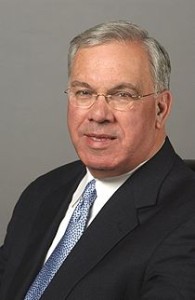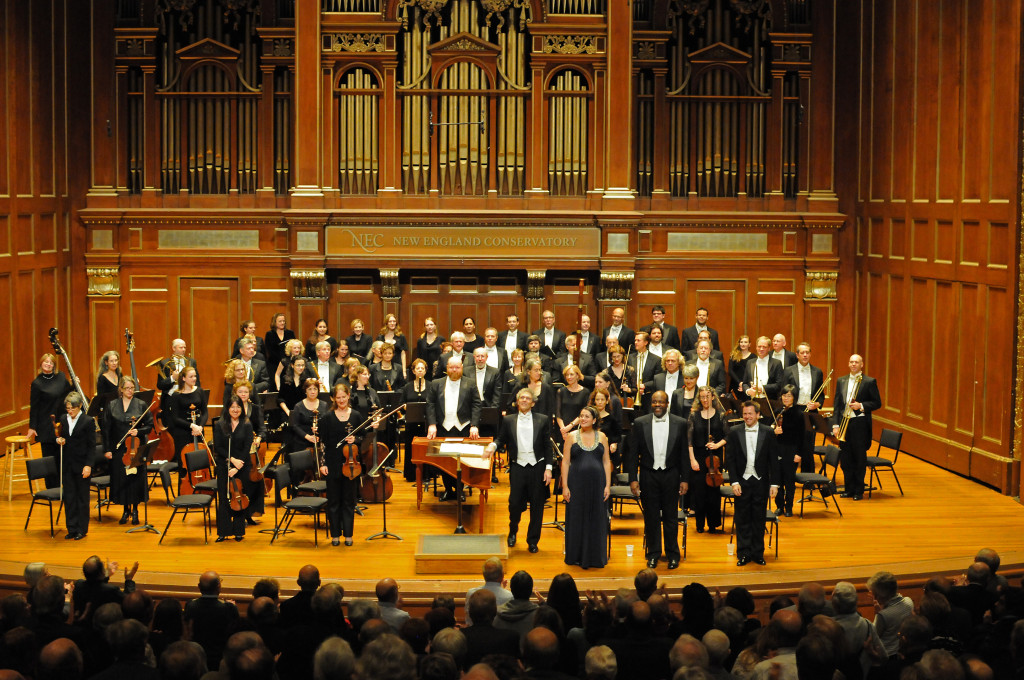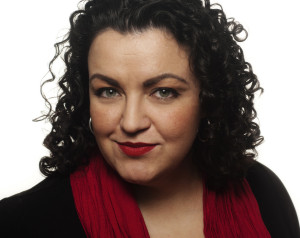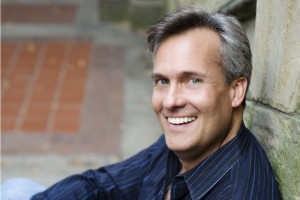Boston Baroque Presents a Free Concert for the Boston Community Hosted by Mayor Tom Menino
Celebrating Boston Baroque’s 40 years, concert will feature Beethoven’s 9th Symphony, performed on period instruments
Sunday, November 10 at 2pm at Dorchester’s Strand Theatre
In sync with Boston Baroque’s exciting 40th Anniversary Season, the Grammy®-nominated orchestra will present a free concert for the Boston Community, at the historic 1400-seat Strand Theatre, 543 Columbia Road in Dorchester on Sunday, November 10 at 2:00pm. The concert, sponsored and hosted by Mayor Thomas M. Menino, and the City of Boston’s Office of Arts, Tourism and Special Events is also made possible by a grant from the National Endowment for the Arts and the Free For All Concert Fund. The performance will feature a glorious, Beethoven program that features the always-celebratory Symphony No. 9. Soprano Leah Partridge, mezzo-soprano Ann McMahon Quintero, tenor William Burden and bass Kevin Deas are featured soloists alongside the acclaimed Boston Baroque Chorus.
 “I’m proud of all the hard work that’s gone into the renovation and re-opening of the Strand,” Boston Mayor Thomas M. Menino said. “Organizations are recognizing the Strand as an important venue for the performing arts and a valuable resource for all the people of Boston. I’m pleased to welcome Boston Baroque for its performance of Beethoven’s Ninth Symphony, as it celebrates its 40th anniversary.” said Mayor Menino.
“I’m proud of all the hard work that’s gone into the renovation and re-opening of the Strand,” Boston Mayor Thomas M. Menino said. “Organizations are recognizing the Strand as an important venue for the performing arts and a valuable resource for all the people of Boston. I’m pleased to welcome Boston Baroque for its performance of Beethoven’s Ninth Symphony, as it celebrates its 40th anniversary.” said Mayor Menino.
FREE, reserved-seat tickets will be available beginning September 4, 2013 at the Strand Theatre Box Office or by calling: 617-635-1403.
Boston Baroque’s Executive Director, Miguel Rodriguez says, “For our upcoming 40th Anniversary Season, we look forward to expanding Boston Baroque’s presence beyond the traditional concert hall by presenting an accessible program with period instruments to new audiences and communities in urban Boston.”
“Beethoven’s Ninth Symphony is the perfect vehicle to give back to the community, and we are committed to making this an annual event,” says Music Director Martin Pearlman.
Soprano Leah Partridge makes her dubut with Boston Baroque. She has received consistent praise worldwide for her compelling stage presence and intelligent interpretations of opera’s most beloved characters. Opera Magazine has praised her for her “clarity, accuracy and poise,” and the Detroit Free Press has hailed her for her “lovely presence and shining voice.” Since making her debut in 2003 as Lucia in Lucia di Lammermoor, Ms. Partridge has had a career full of remarkable milestones. Her Metropolitan Opera debut came in 2008 as the First Niece in Peter Grimes followed by a return engagement as La Charmeuse in Thaïs. Both roles were part of the MET’s Live in HD broadcasts and were released on DVD on EMI. In 2010, Ms. Partridge performed Marie in La fille du Regiment with The Metropolitan Opera to great acclaim as a last minute replacement and the performance was captured live on Sirius Satellite Radio.
Praised for her “crème caramel tones” and “warm and ingratiating mezzo” by the Albuquerque Journal, Ann McMahon Quintero’s 2012-13 season included Mary in Der fliegende Holländer in a return to Boston Lyric Opera, Amneris in Aida with Annapolis Opera and mezzo soloist in Messiah with Boston Baroque, under Martin Pearlman. She made her debut with the Spoleto Festival (USA) as Suor Pazienza in Giordano’s Messe Mariano in summer 2013 and, in season 2013-14, with Virginia Opera, as Mistress Quickly in Verdi’s Falstaff.
Also making his debut with Boston Baroque, American tenor William Burden has won an outstanding reputation in a wide-ranging repertoire throughout Europe and North America. He has appeared at the Metropolitan Opera, San Francisco Opera, Lyric Opera of Chicago, Houston Grand Opera, Seattle Opera, Opera Company of Philadelphia, Santa Fe Opera, New York City Opera, La Scala, Glyndebourne Opera Festival, Paris Opera, Munich State Opera, Canadian Opera and the Saito Kinen Festival. His many roles include the title roles of Faust, Pelléas et Mélisande, Orphée et Euriydice, The Rake’s Progress, Roméo et Juliette, Béatrice and Bénédict, Edgardo in Lucia di Lammermoor, Aschenbach in Death in Venice, Captain Vere in Billy Budd, Don Jose in Carmen and the Male Chorus in The Rape of Lucretia. He also appeared in the U.S. premiere of Henze’s Phaedra at the Opera Company of Philadelphia and created roles in Tobias Picker’s An American Tragedy at the Metropolitan Opera, Christopher Theofanidis’ Heart of a Soldier at the San Francisco Opera, Kevin Puts’ Pulitzer Prize winning Silent Night at the Minnesota Opera and Daron Hagen’s Amelia at the Seattle Opera.
Kevin Deas has gained international acclaim as one of America’s leading basses. Lauded for his “burnished sound, clarity of diction and sincerity of expression” and “fervent intensity” by Chicago Tribune critic John von Rhein, Deas has been variously called “exemplary” by the Denver Post, “especially fine” by the Washington Post and possessing “a resourceful range of expression” by The Cincinnati Enquirer. He is perhaps most acclaimed for his signature portrayal of the title role in Porgy and Bess, having sung it with the New York Philharmonic, Philadelphia Orchestra, National Symphony, the St. Paul Chamber Orchestra, the San Francisco, Atlanta, San Diego, Utah, Houston, Minnesota, Baltimore and Montreal symphonies as well as at the Ravinia and Saratoga festivals. Beethoven’s 9th Symphony was the first example of a major composer using voices in a symphony, thus making it a choral symphony. The words are sung during the final movement by four vocal soloists and a chorus. They were taken from the “Ode to Joy”, a poem written by Friedrich Schiller in 1785 and revised in 1803, with additions made by the composer. Today, it stands as one of the most popular and widely-performed symphonies in the world.
More about Boston Baroque
 Boston Baroque is the first permanent Baroque orchestra established in North America, and is widely regarded as “one of the world’s premier period-instrument bands.” (Fanfare). The ensemble produces lively, emotionally charged, ground-breaking performances of Baroque and Classical works, for today’s audiences, performed on instruments and using performance techniques that reflect the eras in which the music was composed.
Boston Baroque is the first permanent Baroque orchestra established in North America, and is widely regarded as “one of the world’s premier period-instrument bands.” (Fanfare). The ensemble produces lively, emotionally charged, ground-breaking performances of Baroque and Classical works, for today’s audiences, performed on instruments and using performance techniques that reflect the eras in which the music was composed.
Founded in 1973 by Music Director Martin Pearlman, Boston Baroque’s orchestra is made up of some of the finest period-instrument players in the U.S.; they are frequently joined by the ensemble’s professional chorus and by instrumental and vocal soloists from around the world. The ensemble presents an annual subscription series consisting of five programs that are performed at New England Conservatory’s Jordan Hall in Boston, Massachusetts, or Harvard University’s Sanders Theatre in Cambridge, Massachusetts. In 2012-13 the ensemble inaugurated New Directions: a chamber music series mixing music of the baroque and modern eras played on modern and period instruments.





What is your New Year’s Day program this year?